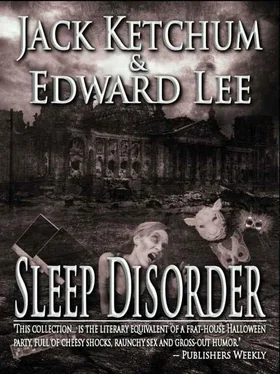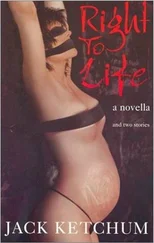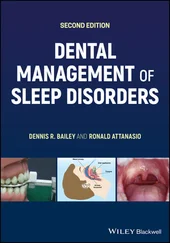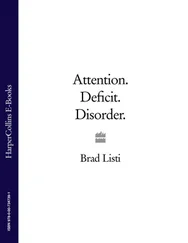Annie, now: "And thank God you were right. I've hated that scumbag for so long. And I knew he stole my uncle's coins."
"Were we a couple of fools," Laura said. "Falling for that lying, thieving piece of shit!"
“—Shhh!" Annie said. "Keep your voice down. You'll wake him up."
"No need to worry about that," Seymour said. "The benzothiamide (???Benzthiazide?) you were adding to his nighttime dose of Clonifil is not only the latest hypnotic on the psychiatric market, it's one of our best sleeping pills. It's a diazepam analogue…"
"Urn, could we talk in the English language please?"
"My point is that even if he got up right now and began somnambulating, he wouldn't know we were here. He wouldn't enter a waking state if you screamed in his face, that's how powerful this drug is. I'm just sorry about the side effects."
"Yeah, Annie. He could've killed you."
"Yes," Seymour said, "I told you to be careful. One side effect is night terrors in persons with high serum sodium levels, which is the case with hypertensives."
"Well, it was a chance I had to take," Annie whispered. "I needed to be right by his side every night so I'd hear him when he decided to start talking about it. But the other night, that was the last straw. That psycho scared the shit out of me."
"Well, we got lucky. We got what we needed tonight." The doctor again. "Speaking of which, let's go get it. Behind the couch, correct?”
“Yeah," Annie said. "Come on."
The machine deactivated for a second, then voices turned it back on again.
"Oh, I just can't believe it!" Laura was squealing with joy.
"Not just the coins and the bonds but…it looks like Billy-Boy has been up to some work on the side," Seymour said.
Annie's voice. "God! Look at all this money! There must be a million dollars here."
Bill was paralyzed. No. Not a million. Two million. And change. Seymour was chuckling. "Looks like we're all quite rich. Let's go, ladies. My place. The champagne's on me."
More squeals of delight.
It seemed to be over and as the saying goes, enough was plenty. He'd been duped perfectly. And he couldn't help but be furious. Control, control , he kept telling himself. Deep breaths. Calm down. His chest was tightening. But it wasn't over. There was more.
Laura's voice. "Wait. What about him."
"Don't worry about him." Seymour said. "I've already taken care of him.”
“What did you do?" Annie said.
"What we discussed. I emptied his morning Clonifil capsule and refilled it with potassium dichloride. He'll have a massive heart attack within thirty minutes of taking it. With hypertension on his medical files no one will give it a second thought."
A door opening. And closing. Keys in the lock.
Then his own voice shouting, fists pounding on the wall.
He turned it off.
Bill's eyes felt practically lidless. Chest ever tightening, he staggered to the kitchen and rechecked what he already knew. The little blue plastic pill box that he always put his next day's meds in before bedtime.
The slot for his Clonifil was empty.
By Jack Ketchum
This story is the basis for the Ketchum/Lee collaboration SLEEP DISORDER
He never dreamed.
Hadn't for a long time. At least not that he remembered.
The popular wisdom was that you had to dream or you'd go crazy — you'd already be crazy — so he assumed he did, really. He just couldn't remember anything. Practically speaking that was as good as not dreaming at all. Which was fine with him.
But there had to be dreams. Or else where would the talking come from?
He talked in his sleep.
Pretty much every night if you were to believe Annie. Or Laura, his wife. And he guessed it had started way back in college because he remembered he'd sure scared the hell out of Harry, his first roommate, their second night in the dorm together by sitting bolt upright in bed and saying, "I have come to you through space and time — but not through New Jersey."
And then going back to sleep again.
Harry was kind of leery of him for a week or two.
What you dream, he said, was how you see others seeing you.
Well, Harry was a psych major and a little too cute for his own good.
But from thirty on everybody complained about the talking. Laura had even bought earplugs. Which he thought was pretty rude.
He talked in a clear, conversational voice and everything he said made sense, or would have, if you could find a context for it.
But you couldn't. Because the context was dreams.
And he never remembered dreams.
The talking was a minor annoyance. Annie even seemed to find it funny at first.
"Who's Millie?" he remembered her saying one morning. There was a scratch on one of his knuckles, a little dried blood there, and he was looking at that trying to figure out how it had got there in his sleep when she said, who's Millie.
"Huh?"
"Who's Millie? You talked about last." She laughed. "Tell Millie not to buy until the divorce comes through. It's going to get very messy.—
He laughed too. "Sounds like I was trading," he said. He worked the floor of the Stock Exchange. He guessed he was dreaming about that.
Though he had no idea what a divorce would have to do with it. And he didn't know any Millie.
Annie shook her head. "You're really something," she said. "It was mostly as clear as a bell. 'Tell Millie not to buy.'"
"Hope she took my advice," he said.
Some nights it was funny and some nights — when Annie needed her sleep and he'd wake her shouting "Mail it!" — it was annoying. But nothing more than that.
What was really annoying was the snoring.
The first time she elbowed him in bed he was mortified.
"You were snoring," she said.
"I was not."
He glanced at himself in the mirror. His eyes looked puffy, saggy. Usually he got up feeling pretty good.
"I was not."
He couldn't believe it — wouldn't believe it. Snoring was something old people do. It was impossible. He was forty.
His father had snored and you could hear it through every room in the house. There was nothing at all funny about that. It was repulsive. It was so…
…out of control.
If there was one thing Bill Dumont couldn't stand it was lack of control. That was exactly why he'd left Laura — and his son Philip too for that matter. Without looking back, without a twinge of guilt.
They hadn't the foggiest notion of control.
Laura, chronically late, forgetting appointments, forgetting to put gas in the car for godsakes, scattered.
Philip constantly losing things at school — his lunchbox, his gloves, his new down jacket. So what if he was only five years old? That's what Laura kept telling him: "Bill, he's only five!" So what? Did that mean you automatically had to yell for a glass of milk every time the Jets were on the five-yard line?
Everybody had excuses. Laura's mother had cancer. It was on her mind. Of course it was. He knew that. And Philip, according to the counselors at school, had a mild learning disability which he would eventually learn to cope with quite nicely. Eventually.
In his book none of that mattered. You either had control of things — of yourself — or you didn't.
He'd stood it for five years. Then he dumped them. Three months later he found Annie sitting on a barstool in the Allstate. You could do that if you were in control. Make your life over on a dime.
He was living proof.
That was two months ago now and he'd managed to talk Annie into moving in with him and everything was fine.
But now this…
…indignity.
Snoring.
He tried everything. Sleeping on his back. On his left side, on his right, on his belly.
Читать дальше











